Five International High-Yield Savings Accounts
September 19, 2024
With rising inflation still an issue for many economies and the cost of utilities and basic goods subject to never-ending hikes, the purchasing power of the money you have in banks is reduced.
That’s why receiving pennies in interest on our deposits and savings feels like being cheated. Sadly, however, many of us have got used to minimal returns on our cash stores in the form of single-digit interest and sometimes even less.
So, while you’re probably used to seeing pennies in interest added to your normal savings account each month, other accounts promise larger returns. If you’ve spent any time online recently, you’ve no doubt heard the buzz about high-yield savings accounts.
These accounts can pay a far healthier rate of interest, especially when we’re used to the money in our savings account not earning a whole lot more than money sitting in a jar.
So, what is a high-yield savings account? It’s really no different than your general savings account. It’s just as liquid as a traditional savings account, meaning you have access to your money as normal. But, instead of the traditional savings account that offers a modest interest rate, these accounts offer more. And they are protected just as much as your traditional savings accounts.
There are a lot of high-yield savings accounts with online banks that offer you a debit card that you can use at an ATM at a relatively low fee to get your money. But, if you’re more comfortable with them, traditional bank accounts work too.
Another important factor is where you bank because you don’t have to limit your banking facilities to your home country. In fact, there are plenty of easily accessible offshore options that offer higher interest rates than your local bank.
Here at Nomad Capitalist, we believe the best way to increase your wealth is to ‘go where you’re treated best’. If you’re looking for a high-yield savings account, don’t be surprised if that is overseas.
Take Georgia, the first country on our list – Nomad Capitalist founder Andrew Henderson has been talking about the benefits of banking there for years. The reason: it has some of the best high-yield savings accounts in the world.
‘In the United States and other Western countries, banks pay a paltry few basis points on your savings,’ he points out.
‘My one savings account in Canada – opened six years ago – literally pays 0.0001%. Deposit US$10,000 into your savings account and earn US$1 per year. It’s crazy.’
‘I still keep a little money in an online high-interest savings account in the United States, where I’m dutifully paid 1.7% per year. But I earn much more overseas with high-interest savings that often exceed 10%, and interest earned from holding foreign currencies and can reach as high as 6% in US dollars.’
Are Foreign Banks Safe?
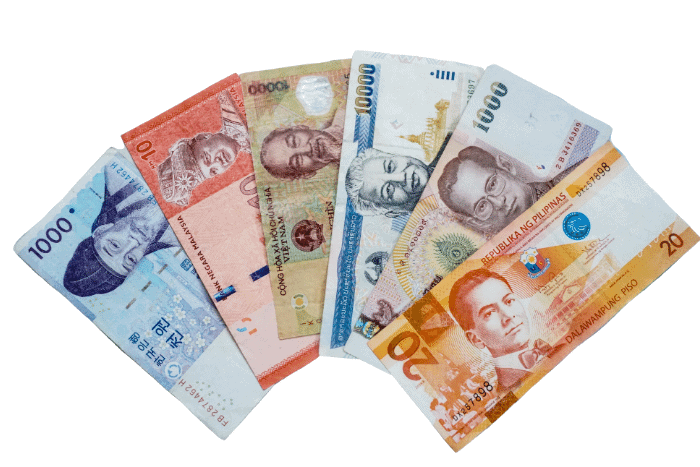
Banks in other countries lend money at higher rates in the way Western banks used to. While US citizens no longer need 15% mortgages as they did in the 1970s, there are plenty of countries where the interest rate to buy a home, finance a car or borrow short-term capital is much higher than where you live.
Banks in these countries can make a killing from charging much higher interest on loans– how does 72% interest on a credit card sound? In return, they have to pay higher interest rates to attract capital.
In Georgia and many other countries, high-yield savings accounts are paying double or triple what you’d earn in the very best savings account in the United States.
While some nations forbid non-residents from opening a bank account, plenty of countries allow anyone to open a high-interest savings account, even with a tourist visa. Some banks, like most in Tbilisi, Georgia, allow you to do so with no minimum deposit.
You may have the impression that offshore banking is shady, risky or even illegal. It’s not. It’s perfectly safe and above board. There are clear government standards in place. For example, US citizens must report foreign bank accounts if the aggregate balance is US$10,000 or more at any time in a calendar year.
Other countries may have their own requirements, but in no country that we know of is the practice illegal, unless you are wilfully hiding the money.
You may also think that offshore banks are sketchy and poorly managed. Again, you’d be wrong. The two largest banks in Georgia trade on the London Stock Exchange. Many foreign banks have higher solvency ratios than US, British or Australian banks, which now have bail-in procedures to take your money if the economy goes south.
In many countries, large international banks are available if you prefer. Armenia, for example, has both HSBC and the French bank Credit Agricole, while countries like Turkey and Romania have the Deutsche Bank.
We could go on, but suffice it to say that you don’t have to sacrifice safety for higher interest rates when you go offshore.
Banks with High-Yield Savings Accounts
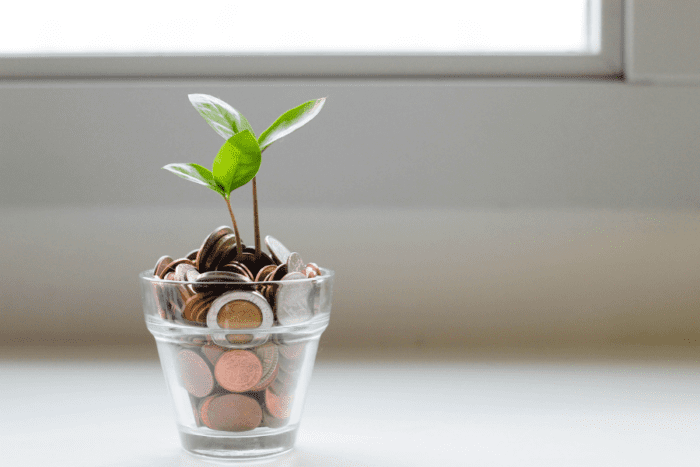
The highest interest rate on savings accounts will be offshore in emerging countries. The good news is that emerging countries will require lower minimum deposits (sometimes, as little as US$1) and, as they are eager to attract depositors, will often be more open to foreigners (sometimes all you’ll need is a passport).
While offshore banks in Switzerland, Austria and Singapore are stable ‘name brands’, they won’t pay much more interest than you’ll find at home, save for the fact that the Singapore dollar is one of the only safe haven currencies left that isn’t yielding zero interest.
Banking in Georgia
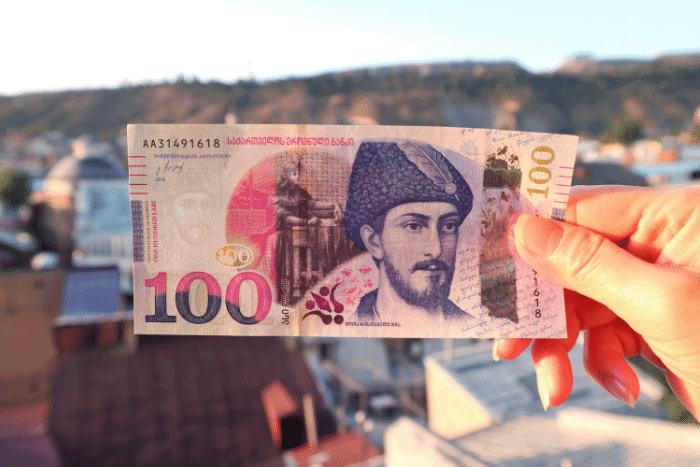
Georgia remains one of the easiest places in the world to open a bank account. The country’s two largest banks are TBC and Bank of Georgia, both of which trade on the London Stock Exchange. Many of the smaller banks eschew foreigners, but a few will accept you.
Tourists are welcome to bank in Georgia, although interest rates are slightly lower than those of residents and citizens. The largest banks in Georgia – TBC Bank and Bank of Georgia currently offer rates of 10% and 11.25% on one-year term deposits, respectively.
If you’re willing to deposit mid-five figures, you may be able to establish a priority banking relationship with your own point of contact, who can get you slightly better rates.
Smaller banks offer better rates. For example, UAE-owned Terabank offers 10.50% if you take your money at the end of a 12-14 month term.
The process of opening a bank account in Georgia is fast; you only need to visit for two days, although it’s possible to open one remotely if you know a good attorney. At Nomad Capitalist, we generally recommend visiting first since Georgia is beautiful, and the food and wine are among the best you’ll find anywhere.
Online banking there is excellent; you can open more term deposits online from the comfort of your home or cash out your deposit without needing to return to Georgia.
Banking in Armenia
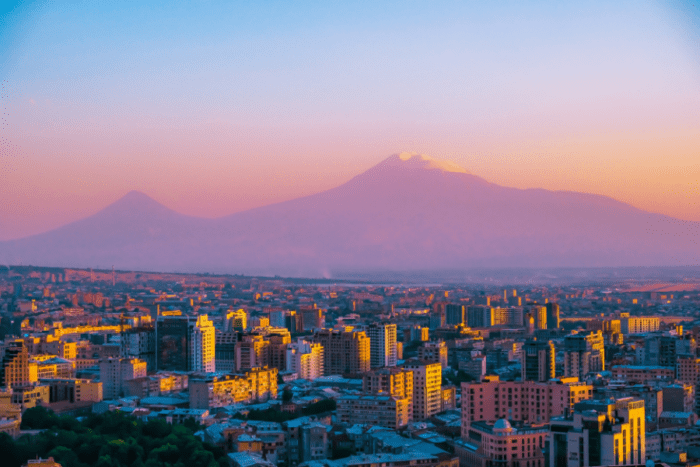
Just south of Georgia is Armenia; the flight between the capital cities, Yerevan and Tbilisi, takes just twenty-eight minutes. Armenia was slower to reform than Georgia but is catching up. Armenians live all over the world and have a very international perspective.
Armenian banks offer some of the highest interest rates in Europe on US dollars, euros and the local Armenian dram. Evocabank is a smaller but growing bank that pays 10.5% on a one-year term deposit denominated in dram. Two-year USD deposits can earn a healthy 5% yield.
The Armenian dram is one of the best-performing currencies against the US dollar, appreciating 23.9% since 2020. If the dram continues to perform well against the dollar, you can enjoy ultra-high interest rates.
Opening a bank account in Armenia will allow you to earn high interest rates, but you’ll need to have your passport translated first. We advise using attorneys you trust for this, but the process doesn’t have to be expensive.
Banking in Cambodia
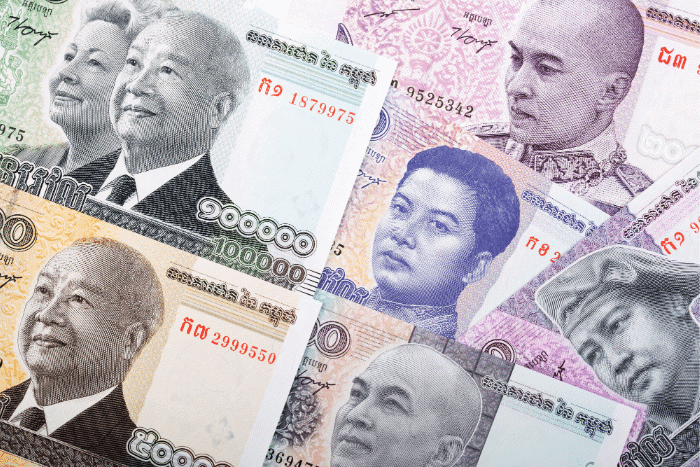
In Cambodia, locally owned Canadian ABA Bank will pay 4.25% on your US dollar savings for a one-year and two-year term deposit. Make that deposit in Cambodian riel and you’ll earn 5.75%.
Other local banks, like Acleda Bank, will pay similar rates. Korean-owned Woori Bank, a microfinance institution, was paying 7.25% on US dollars. The US dollar is widely used in Cambodia, and the local currency is mostly given for change yet rarely fluctuates much against it.
You can earn extra percentage points by depositing in riel instead, which likely won’t have much currency risk. Opening a Cambodian bank account requires a visit to the country and a business visa that’s good for at least six months and possibly one year to show your ‘connection’ to the country.
Banking in Mongolia
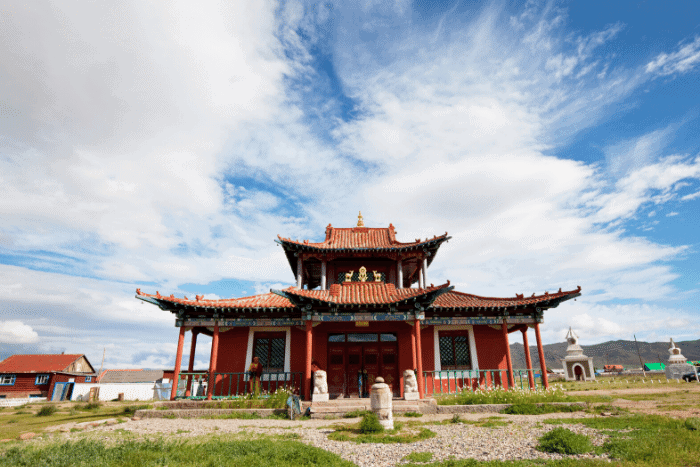
Mongolia gained attention in the offshore community years ago for offering savings account rates of up to 17% on their local currency, the Mongolian tugrik.
That currency has not fared well in recent years and rates in Mongolia have decreased as they have elsewhere. However, you can still earn some of the highest interest yields in the world there.
If you deposit in Mongolian tugriks, you’ll earn 11.2% with Khan Bank and 12.4% with Golomt Bank. Banking in Mongolia can be challenging because English is not widely spoken there.
Mongolia doesn’t get many tourists (and most are Chinese and Russian), so they can be a bit confused about why Westerners would open a bank account there. It’s also not as mobile-friendly as countries like Georgia.
Banking in Ecuador
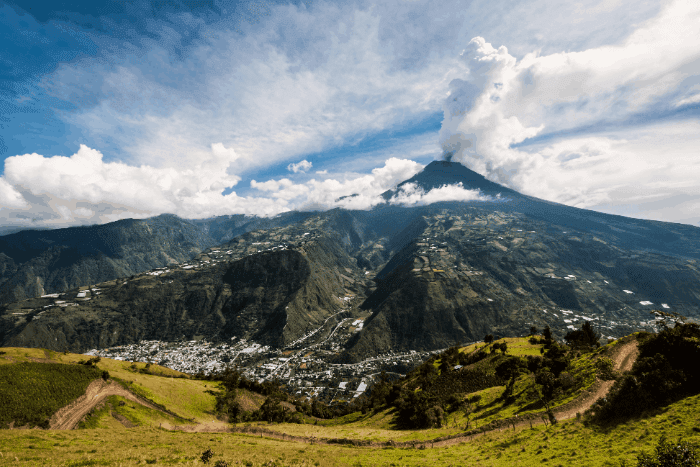
Ecuador is not only a country where banks offer high-interest savings accounts; it’s become one of the most sought-after retirement destinations in South America. While Panama is still recovering from the negative exposure of the Panama Papers and the cost of living is expensive, Ecuador is a cheap place to retire. Anyone can visit as a tourist or by obtaining a residence permit.
The official currency of Ecuador is the US dollar, meaning there is no currency risk for US citizens. The co-op (a sort of credit union) of JEP Ecuador offers among the highest interest rates on deposits, with US dollar rates of 7% for one year and 8% for two years.
If you prefer a traditional bank, the country’s most profitable bank is Banco Pichincha, where rates are a few percentage points lower. Term deposits in Ecuadorian banks are insured up to about US$30,000.
While Ecuador banks are happy to accept foreigners, as with most banks in Latin America, you’ll need more paperwork than you would in Georgia or Armenia.
Other International Banks
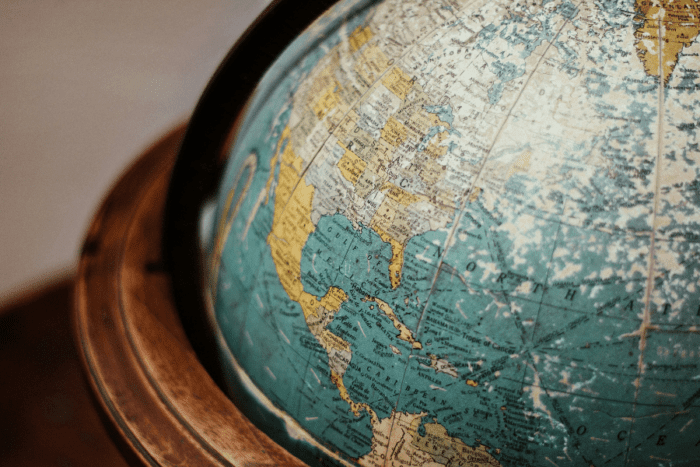
If you’re willing to take on some foreign currency risk, you can earn even higher interest rates than were shown here. Banks in Egypt, Ukraine, Kazakhstan, Russia, and elsewhere offer yields that are in the high double digits in their local currencies.
Some of those foreign currencies are worthless, while some are halfway decent. It wasn’t that long ago that the US dollar was sold off as investors sought the higher yields of emerging world currencies, and we believe that cycle will play out again sometime in the future.
Whether you prefer the stability of US dollars or are willing to add some foreign currency exposure to your portfolio, banking overseas is usually safe.
In fact, with Western countries prompting their neighbours to add ‘bail-in’ policies that would confiscate savings in an economic collapse, many of these countries have merely improved their banking services and not threatened to steal from their depositors.
Even if you have money in multiple bank accounts and high-yield savings accounts around the world, it’s unlikely you’ll lose one cent due to a bank failure.
While our team at Nomad Capitalist won’t suggest you dump your life savings into an Armenian bank, we do believe higher yields overseas can be a nice complement to your savings efforts in your home country.
Do you need help exploring your offshore banking options? To find out how we can help, reach out here.


Does Puerto Rico Pay Taxes to the US?
It’s a common question and one that often fuels confusion, debate, and a fair share of misinformation – Do residents of Puerto Rico actually pay US federal taxes? When most people think of US tax obligations, they naturally assume they apply uniformly across all US citizens. But when it comes to Puerto Rico, things are […]
Read more

Zug Canton Taxes: The Ultimate Destination for Wealth Management in Switzerland
Switzerland’s global reputation is built not just on stunning views of Alpine peaks and serene lakes but also on a foundation of exceptional quality of life, world-class infrastructure and investor-friendly tax policies. The results speak for themselves: efficient public transport seamlessly links cities and villages; the standard of living regularly ranks among the highest in […]
Read more

How Smart Investors Use Venture Capital to Build Wealth
Big companies like Google, Amazon, Facebook and Apple all started out as bold ideas backed by venture capital. Decades later, the same firms are household names, as familiar to most people as electricity, the internet, or the telephone. But hindsight is a fickle friend. The truth is, it wasn’t always so obvious they’d succeed. These […]
Read more




